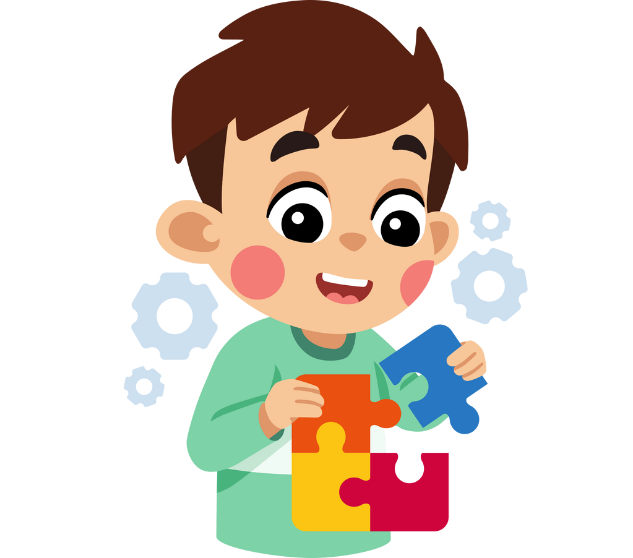Child as the center of learning
Children are free to choose activities based on their interests in a carefully prepared environment.
It focuses on child-centered learning, fostering independence, curiosity, and natural development through hands-on experiences.
🧠 The core principles of Montessori emphasize self-directed learning through hands-on experiences in a carefully prepared environment.

Children are free to choose activities based on their interests in a carefully prepared environment.
Classrooms are designed to encourage exploration, independence, and focus.
Teachers observe and guide rather than instruct directly.
Children learn by touching, feeling, and working with real, tangible materials.
Montessori emphasizes specific “sensitive periods” where children are especially receptive to learning particular skills.
🧩 Montessori activities involve hands-on learning across areas like Practical Life, Sensorial, Language, Math, and Cultural studies. These activities help children develop independence, concentration, and a deeper understanding of the world around them.
buttoning clothes, pouring water, cleaning tables
exploring textures, colors, shapes with tools like the pink tower
counting with beads or wooden number boards
learning letters with sandpaper letters, phonics-based reading

Why the Tools Matter Just as Much as the Teaching One of the most distinctive features of Montessori education is the specialized materials used in the classroom. These aren’t just toys — they are intentionally designed learning tools that help children understand abstract concepts in concrete ways.


Montessori materials engage the hand to reach the mind.
They empower children to discover how learning works, not just what the answers are.
You don’t need every material! Start simple:
✅ Builds independence ✅ Encourages natural curiosity ✅ Improves concentration and focus ✅ Respects each child’s learning pace ✅ Fosters responsibility and self-discipline
If you want your child to grow into a confident, independent, and curious learner, Montessori might be a great fit. And the best part? It’s not just for the classroom — you can apply Montessori principles at home too!
Use open shelves instead of closed toy boxes Involve your child in daily tasks like cooking or cleaning Let them choose their own activities and learn from mistakes Choose natural, simple toys that don’t overstimulate








